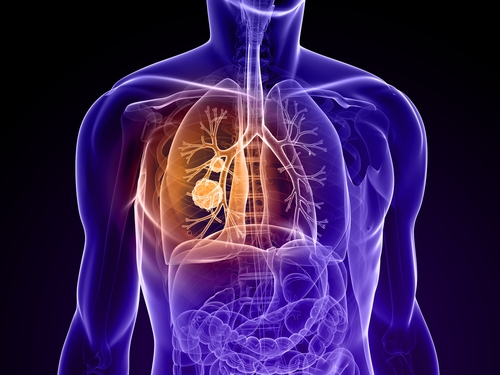 A recent study discovered a bacterial toxin that induces acute inflammation in asthma and other acute and chronic pulmonary diseases. The study entitled “ADP-Ribosylation of NLRP3 by Mycoplasma pneumoniae CARDS Toxin Regulates Inflammasome Activity” was published in mBio by Santanu Bose, PhD, from the Department of Veterinary Microbiology and Pathology, College of Veterinary Medicine, Washington State University and colleagues.
A recent study discovered a bacterial toxin that induces acute inflammation in asthma and other acute and chronic pulmonary diseases. The study entitled “ADP-Ribosylation of NLRP3 by Mycoplasma pneumoniae CARDS Toxin Regulates Inflammasome Activity” was published in mBio by Santanu Bose, PhD, from the Department of Veterinary Microbiology and Pathology, College of Veterinary Medicine, Washington State University and colleagues.
Mycoplasma pneumoniae (M. Pneumoniae) is a bacterial pathogen that causes frequent and persistent infection in the lungs and airways. This pathogen produces an ADP-ribosylating and vacuolating toxin and is named community-acquired respiratory distress syndrome (CARDS) toxin. This toxin was discovered in 2006 at the University of Texas Health Science Center at San Antonio.
The inflammasome, in macrophages, is a very important regulator of inflammation by activating procaspase-1, which causes the conversion of prointerleukin-1β (pro-IL-1β) into mature form, the interleukin-1β (IL-1β). The level of inflammation is highly associated with IL-1β, which is a proinflammatory cytokine that is implicated in several inflammatory diseases. NLRP3 is an essential constituent of the inflammasome complex, with various signals and stimuli inducing the formation of the NLRP3 inflammasome complex. In this study, the research team showed that the unique bacterial ADP-ribosylating and vacuolating toxin produced by M. pneumoniae activates NLRP3 inflammasome by colocalizing with the NLRP3 inflammasome and performing the ADP-ribosylation of NLRP3. This is a mechanism of activation of NLRP3 inflammasome by a bacterial signal that was never described.
[adrotate group=”3″]
The researchers found that if they stimulated macrophages with CARDS toxin that did not have the ADP-ribosyltransferase (ADPRT) activity or with shorter CARDS toxins, these could not enter the macrophages and there was no activation of the NLRP3 inflammasome. They were able to shown that CARDS toxin-mediated ADP-ribosylation is a novel and crucial post translational modification mechanism of NLRP3, and an intact ADPRT activity of CARDS toxin is fundamental for the activation of NLRP3 inflammasome and release of IL-1β and subsequent pathologies.
“Inflammation is important for self-protection from infection and any injury, but when a microbial factor such as the CARDS toxin controls inflammation, bad things happen,” said Dr. Joel B. Baseman, professor of microbiology and immunology in the School of Medicine at the UT Health Science Center and director of the Center for Airway Inflammation Research (cAIR), in a press release. “Through this mechanism, CARDS toxin triggers exaggerated and prolonged inflammation that results in tissue injury, airway narrowing, mucus hypersecretion, wheezing and coughing.”
“Because M. pneumoniae infections occur so frequently in children and adults and CARDS toxin is such a powerful inducer of inflammation, it is likely that co-infections involving M. pneumoniae, CARDS toxin and other respiratory pathogens result in enhanced severity of disease,” said Dr. Santanu Bose, co-author of the study.
Dr. Thirumalai R. Kannan, co-author of the study, said that their main objective now is to use drugs, vaccines and protective antibodies to prevent a series of lung and airway diseases induced by CARDS toxin.

